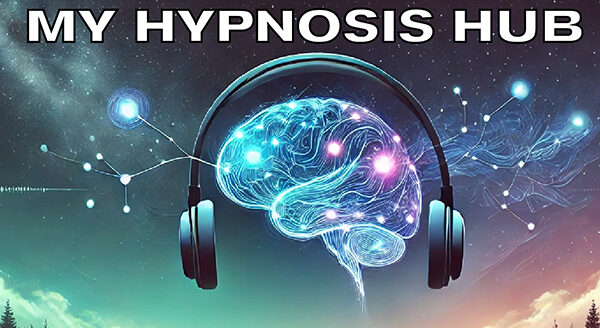Can Hypnosis Help with ADHD: A New Path to Clarity and Focus
Can hypnosis help with ADHD? This is a question posed by many individuals seeking relief from the daily challenges of distractibility, impulsiveness, and mental restlessness. In a world brimming with quick-fix solutions and busy schedules, it can be difficult to find a reliable, holistic way to manage ADHD symptoms. Hypnosis has emerged as a compelling option, offering a gentle, mind-centered approach that targets the subconscious habits contributing to inattention and impulsivity. Whether you’re new to hypnosis or simply curious about alternative ADHD management strategies, this article will help you explore how hypnosis works, why it’s gaining recognition, and how it might complement other ADHD treatments.
We’ll also touch on why people often ask about different uses of hypnosis, such as “can hypnosis stop binge eating”—another challenge deeply influenced by the mind-body connection. In the process, you’ll discover how the skills you build through hypnosis can positively affect various areas of your life, from productivity at work to your overall sense of calm and self-assurance.
For those ready to experience a tailored hypnosis program, you might explore the Manage ADHD Hypnosis Audio.
Understanding ADHD and Its Complex Challenges
ADHD (Attention Deficit Hyperactivity Disorder) is more than just feeling unfocused. It’s a neurodevelopmental condition that typically presents in one of three ways: predominantly inattentive, predominantly hyperactive-impulsive, or a combination of both. Individuals with ADHD may struggle with organizing tasks, staying on track, maintaining relationships, and regulating emotions.
Conventional approaches, including medication, behavioral therapy, and lifestyle adjustments, have proven effective for many. Yet, there remains a significant number of people looking for additional or alternative methods to cope with ADHD’s challenges. Hypnosis is gaining interest in this realm due to its potential to rewire thought patterns, strengthen self-regulation, and reduce stress levels—all crucial elements in successfully managing ADHD.
Why ADHD Often Feels Overwhelming
The symptoms of ADHD can be cumulative. Small disruptions—like missing a deadline or forgetting an appointment—can create a ripple effect of disorganization, stress, and emotional turmoil. Over time, you may internalize the belief that you’re “incapable” or “always scatterbrained.” This persistent feeling can take a toll on self-esteem, making it even harder to stay on task or muster the motivation to keep trying.
Hypnosis addresses these hidden thought loops in the subconscious, aiming to dismantle negative self-beliefs and replace them with more empowering ones. In this sense, hypnosis goes beyond simply helping you focus; it also tackles the self-doubt and emotional underpinnings that can exacerbate ADHD symptoms.
Can Hypnosis Help with ADHD by Targeting the Subconscious?
Reprogramming Negative Thought Patterns
One key way hypnosis can help with ADHD is by reprogramming the persistent thought patterns that fuel inattention or impulsivity. During a hypnosis session, you enter a deeply relaxed state, often described as a trance, where the conscious mind takes a back seat and the subconscious becomes more open to positive suggestions.
While in this state, a trained hypnotherapist—or a high-quality audio program—offers ideas and affirmations designed to help you trust your capacity to focus, plan, and stay organized. You might be guided through visualizations that instill a sense of calm and self-control, all of which can make it easier to follow through on tasks and responsibilities once you’re back in your normal waking state.
Enhancing Emotional Regulation
Emotional dysregulation is a common issue for individuals with ADHD. Frustration, anger, or sadness can arise quickly when you’re overwhelmed by a pile of tasks or an inability to concentrate. Hypnosis can help cultivate emotional balance by reframing your internal responses. Instead of spiraling into self-criticism or panic, you learn to gently guide your mind back to a place of calm. Over time, this can lead to more measured reactions, allowing you to address challenges more effectively.
Could It Help with Other Challenges, Like Binge Eating?
You might wonder, can hypnosis stop binge eating, and what does that have to do with ADHD? Both binge eating and ADHD often involve impulsivity and emotional triggers. The techniques used to curb impulsive eating—such as improving mindfulness, regulating emotions, and interrupting negative thought cycles—are closely related to the strategies used to manage ADHD symptoms. This cross-applicability underscores how hypnosis taps into core mental processes that drive behavior.
Benefits of Hypnosis for ADHD Management
- Improved Attention Span
Hypnosis fosters a state of deep relaxation, where focusing on one concept or visualization becomes more natural. Repeated practice can translate into better concentration during everyday tasks, from reading emails to completing projects at work. - Reduced Stress and Anxiety
Chronic stress can worsen ADHD symptoms. Because hypnosis is inherently calming, it may help reduce the anxiety that amplifies inattentiveness. This creates a virtuous cycle: less stress leads to fewer distractions, which leads to greater productivity and calmer emotions. - Enhanced Self-Esteem
Many ADHD sufferers carry feelings of inadequacy. By planting positive suggestions during a trance state, hypnosis can shift your self-perception, helping you recognize that you’re fully capable of managing tasks and responsibilities. - Personalized Approach
Hypnosis is flexible, allowing sessions to focus on the specific ADHD symptoms you find most troublesome—be it hyperactivity, procrastination, or racing thoughts. - Long-Term Mindset Shifts
Hypnosis aims for sustainable change by altering subconscious beliefs and habits. While medication or caffeine might provide temporary boosts, hypnosis trains your mind to sustain focus, even after you’ve ended the session.
Practical Steps to Start Using Hypnosis for ADHD
Choose a Reliable Program
The first step is selecting a reputable hypnosis resource. While there are free scripts or videos floating around online, a structured audio program or certified therapist can better tailor the approach to ADHD-specific needs. Think of it as an investment in a specialized toolkit designed for your unique situation.
If you’re ready to explore a customized program, you might consider the Manage ADHD Hypnosis Audio.
Establish a Consistent Routine
Like any new habit, consistency is key. Set aside time daily or several times a week to listen to your hypnosis tracks. Choose a quiet place where you can relax without interruptions. Some people find it helpful to incorporate hypnosis into their bedtime routine, while others prefer a midday session to reset their minds.
Pair Hypnosis with Other Strategies
While hypnosis can be transformative, it works best when integrated into a holistic plan. Consider complementing it with other evidence-based approaches such as cognitive-behavioral therapy (CBT), exercise, meditation, or medication if recommended by your healthcare provider. All these approaches can reinforce each other, leading to better outcomes.
Track Your Progress
Keep a journal or digital notes documenting your focus levels, emotional states, and overall daily achievements. Notice whether you’re finishing tasks more frequently or feeling less stressed about deadlines. Tracking these small wins can bolster your motivation and give you concrete evidence of improvements—especially on days when ADHD might still feel overwhelming.
Overcoming Common Misconceptions
Myth 1: “Hypnosis Will Control My Mind”
Contrary to popular belief, hypnosis doesn’t turn you into a puppet. During a session, you remain aware of what’s happening and can exit the trance if you wish. The goal is not to relinquish control but to gently bypass mental barriers that keep you stuck in distracting thought loops.
Myth 2: “It’s Just Placebo”
While belief in any therapy’s success can enhance outcomes, studies show hypnosis can measurably change thought patterns, emotional responses, and even physical sensations. If you’ve ever thought, can hypnosis stop binge eating or alleviate pain?, you might be surprised by the growing scientific support for its effectiveness in various domains, ADHD included.
Myth 3: “It’s a One-Time Fix”
Hypnosis is a process, not a one-and-done solution. Like learning to play an instrument, you’ll need consistent practice to master it. Over time, your mind becomes more adept at entering a relaxed, focused state, and the improvements to your concentration and emotional regulation can become more pronounced.
Maintaining Momentum
Integrate Mindfulness into Your Daily Life
Mindfulness complements hypnosis beautifully. Practice being fully present in whatever you’re doing—eating, walking, or completing a work task. Even a few minutes of mindfulness meditation each day can sharpen your attention and further calm mental chatter.
Celebrate Small Wins
ADHD management can feel like an uphill battle. Each time you notice that you’ve tackled a task more efficiently or handled a stressful situation with newfound poise, take a moment to acknowledge your progress. These small victories keep you motivated and confirm that hypnosis and your broader ADHD strategies are paying off.
Revisit and Adapt Your Hypnosis Sessions
Over time, your goals may evolve. Perhaps you’ll want to shift your focus from curbing procrastination to improving organization. Adapt your hypnosis sessions accordingly—opt for updated scripts, re-recorded sessions, or advanced techniques to stay aligned with your current needs.
Can hypnosis help with ADHD – Embrace the Possibilities
So, can hypnosis help with ADHD effectively? While everyone’s response to hypnosis will differ, the practice offers a promising avenue for those craving an internal solution that complements external aids like medication or therapy. By zeroing in on subconscious habits, beliefs, and emotional triggers, hypnosis can potentially improve focus, reduce stress, and fortify self-esteem—a trifecta of benefits for anyone grappling with ADHD.
It’s also worth noting that hypnosis can support numerous life challenges. Many wonder, “can hypnosis stop binge eating or curb other compulsive behaviors?” The underlying principle remains the same: by working with the subconscious mind, hypnosis can help rewrite unhelpful scripts and encourage healthier coping mechanisms. Ultimately, it’s a technique grounded in self-awareness, empowerment, and the conviction that you can reclaim control over your habits.
Remember, the path to mastering ADHD—or any mental health challenge—is a journey rather than a race. Small, incremental changes can lead to significant, long-lasting improvements. Whether you choose to explore hypnosis on its own or in combination with other strategies, maintain a spirit of optimism, experimentation, and perseverance. In doing so, you’re setting yourself up for a more balanced, fulfilling life—one in which ADHD is just one part of your identity, not the defining feature.
Ready to delve deeper? Check out the Manage ADHD Hypnosis Audio for a specialized program aimed at enhancing focus, reducing stress, and guiding you toward greater success in your daily life.



